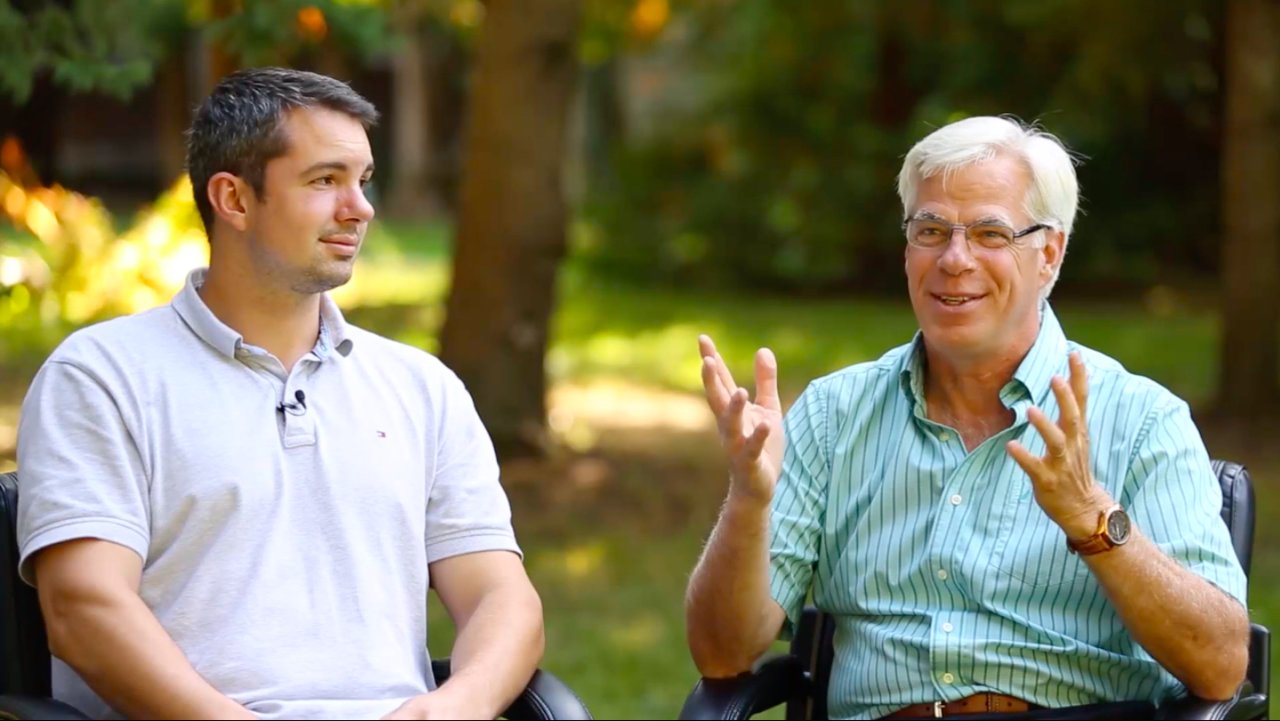Industry Insights
How Storytelling Can Help You Lead a More Meaningful Life

Donald Miller starts A Million Miles in a Thousand Years by saying, “Nobody cries at the end of a movie about a guy who wants a Volvo.”
Uh oh...
Those who know me are well aware of my love affair with Volvos.
Was I the guy Miller was referring to? I HAD to read the rest to find out.
In his fifth book, Donald Miller recounts his transformation from living an average adult life to leading a meaningful story. He also showed me how learning what makes a good narrative can help us understand and even change our lives for the better.
These are my five most important takeaways.
1. People are just people, even if they’re world leaders.
Miller shares a lesson from his friend Bob Goff, who decided to write letters to hundreds of world leaders, inviting them over to his house. A few showed up — and a few couldn’t make it — but they all took the time to personally write back.
One of my fondest memories from one of my first jobs (at a multi-billion-dollar corporation) was eating spring rolls with the janitor and the CEO in his executive office. He was just like any of us. And so is every world leader, executive and celebrity.
2. Every life is a story. Whether it’s a story worth telling is up to you.
As children, we have big dreams of “what we want to be we grow up”: to become a firefighter, to find a cure for cancer or to end world hunger.
As we grow older, many of us settle for ordinary lives. I want to be clear that there’s nothing wrong with ordinary — and you don’t need to start a revolution to lead a story worth telling — but when we lose our hunger to live a meaningful life, our story can quickly become like the “one about the guy who wants a Volvo.”
Miller, like many young adults, started to settle for an average life in front of the TV. He felt self-conscious about his weight and unsure about where his life would take him.
Wanting his life to change, he asked his crush to hike the treacherous Inca Trail to Machu Picchu with him. She said yes.
In good stories, this is what’s called an “inciting” incident. A doorway the character walks into, but cannot go back. Now Miller had to get off his couch and get in shape. Ignoring that call would cost him his dignity… and possibly his life.
3. All good stories have a character (who wants something) and conflict.
The basic structure of a story is simple: a character wants something and overcomes conflict to get it.
The problem is, humans tend to avoid conflict. If we’re going to live a more meaningful life, not only do we have to want it, we need to be intentional about facing the obstacles that come up.
To survive the long and exhausting journey through the Inca Trail, Miller had to overcome a lot of hurdles — but he couldn’t do it alone. He did it with the guidance of a personal trainer who gave him a plan, called him to action and kept him accountable.
We need to embrace conflict, rather than run from it. But just like Miller or any superhero, we can’t do it alone. We must look to a much stronger and wiser guide (family, friend, mentor, consultant, coach… personal trainer!) to point us in the right direction and keep us accountable.
“Once you live a good story, you get a taste for a kind of meaning in life, and you can’t go back to being normal; you can’t go back to meaningless scenes stitched together by the forgettable thread of wasted time.”
Donald Miller
4. The point of life is to transform our character.
The point of a story is not that the character wants something and overcomes conflict to get it. That’s just what happens in most stories.
What matters is if the protagonist — whether or not they know it — yearns to become a better version of themselves. In storytelling, it’s a concept is called “aspirational identity.”
The journey the character embarks in, the people they meet along the way and the challenges they overcome are what transform the main character — for better or for worse.
When we lead intentional lives, our paradigm shifts from searching for happiness to searching for meaning. From living for ourselves to living for others.
Miller went from watching TV on the couch and feeling self-conscious about his weight to feeling confident.
5. Story can change everything.
Miller writes that “once you live a good story, you get a taste for a kind of meaning in life, and you can’t go back to being normal; you can’t go back to meaningless scenes stitched together by the forgettable thread of wasted time.”
Life can sometimes feel random. And at times, it is.
Understanding the elements and rules of storytelling and applying them to your life can bring much-needed clarity and meaning. It can also help you live a more intentional story.
Think about it this way: When it’s all said and done and God asks you about your life, what story will you tell?
I still love my Volvo, but I want my life story to be much more meaningful.
I want my life to be filled with adventure, laughter, love and the right amount of drama. And most importantly, I want to lead a story that serves a higher purpose.
December 18, 2020


